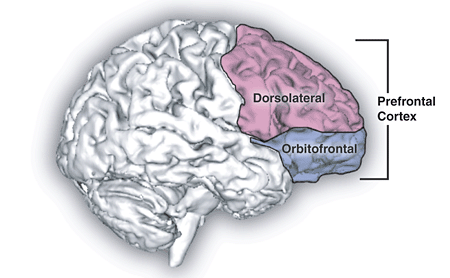Surprising Facts About How Music Affects Your Brain
The human brain is a marvel of nature, an intricate network of neurons that not only processes the world around us but also dances to the rhythms that permeate our lives. Music, a universal language, has an uncanny ability to evoke emotions, trigger memories, and even alter our physiological states. This article delves into the harmonious mysteries of how our brains interact with music, revealing the surprising ways in which music influences our cognitive and emotional processes. From enhancing memory to sparking creativity, these insights uncover the profound connection between sound and the mind, inviting us to explore the symphony of neural activity that music orchestrates within us.
1. Memory Enhancement: The Mnemonic Power of Melody

Music's ability to enhance memory is one of its most remarkable effects on the brain. Studies have shown that melodies can serve as powerful mnemonic devices, aiding in the retention and recall of information. This is particularly evident in educational settings where music is used to help students memorize complex concepts. The brain's auditory cortex, responsible for processing sound, interacts with the hippocampus, the memory center, to create strong associative links between music and information. This connection explains why a simple tune can transport us back to a specific moment in time, as the melody acts as a trigger for vivid recollections, effectively weaving memories into the fabric of our consciousness.
2. Emotional Resonance: The Heartfelt Symphony

Music's profound impact on our emotions is a testament to its universal power. When we listen to music, our brains release dopamine, a neurotransmitter associated with pleasure and reward. This chemical response explains the euphoria we feel when our favorite song plays. Moreover, music's ability to mirror and influence our emotional states is rooted in its structure. The tempo, key, and rhythm of a piece can evoke a wide range of feelings, from joy to melancholy. This emotional resonance is why music is often used in therapy, helping individuals process emotions and find solace in sound, demonstrating the brain's capacity to synchronize with musical rhythms.
3. Cognitive Flexibility: The Creative Catalyst

Music is not just a source of entertainment; it is a catalyst for creativity and cognitive flexibility. Engaging with music, whether by listening or playing an instrument, stimulates the brain's prefrontal cortex, which is associated with problem-solving, planning, and creativity. This stimulation encourages divergent thinking, allowing us to approach challenges from multiple perspectives. Musicians, in particular, exhibit enhanced cognitive flexibility, as their brains are adept at processing complex patterns and improvising on the spot. This creative synergy between music and the brain underscores the role of rhythm and melody in fostering innovation and adaptability in our thought processes.
4. Stress Reduction: The Calming Cadence

In today's fast-paced world, stress is an all-too-common companion. Fortunately, music offers a soothing antidote. Listening to calming music lowers cortisol levels, the hormone associated with stress, and activates the parasympathetic nervous system, which promotes relaxation. The brain's response to music's calming cadence is akin to a meditative state, where heart rate and blood pressure decrease, and a sense of tranquility prevails. This stress-reducing effect is why music therapy is increasingly used in clinical settings to help patients manage anxiety and depression, highlighting the brain's ability to find peace in the rhythmic patterns of sound.
5. Social Bonding: The Communal Chorus

Music is a social glue that has the power to unite individuals across cultures and generations. The brain's response to music in a group setting is a fascinating dance of synchronization and empathy. When we sing or dance together, our brains release oxytocin, the "bonding hormone," fostering a sense of connection and trust. This communal chorus is evident in rituals, celebrations, and even protests, where music serves as a rallying cry for unity. The shared experience of music strengthens social bonds, illustrating the brain's innate desire for harmony and collective expression through rhythm and melody.
6. Neuroplasticity: The Adaptive Orchestra

The brain's remarkable ability to adapt and reorganize itself, known as neuroplasticity, is significantly influenced by music. Engaging with music can lead to structural changes in the brain, enhancing neural pathways and connectivity. This adaptability is particularly evident in musicians, whose brains often show increased volume in areas related to auditory processing and motor control. However, even non-musicians can benefit from music's impact on neuroplasticity, as regular exposure to music can improve cognitive functions such as attention and spatial reasoning. This adaptive orchestra of the brain highlights the transformative power of music in shaping our neural architecture.
7. The Symphony of Sound and Mind

As we have explored, the relationship between music and the brain is a complex and fascinating dance that touches every aspect of our cognitive and emotional lives. From enhancing memory and creativity to reducing stress and fostering social bonds, music's influence is profound and multifaceted. The brain's ability to resonate with music's rhythms and melodies underscores the deep connection between sound and mind, revealing a harmonious mystery that continues to intrigue and inspire. As we continue to uncover the secrets of this symphony, we gain a deeper appreciation for the role of music in shaping our human experience, inviting us to listen, learn, and dance to the rhythm of life.







